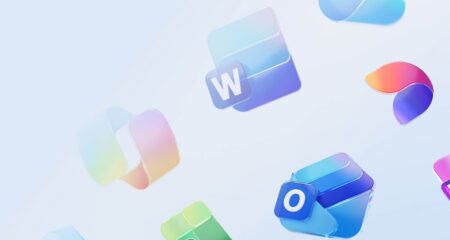
[By Duncan McLeod]
The keynote address by Apple CEO Steve Jobs at this week’s Worldwide Developers Conference in San Francisco was distinctly underwhelming. Is the world’s most valuable technology company running short of groundbreaking new ideas?
It was little more than a year ago that Apple’s market value swept past Microsoft’s. Yet last week, for the first time, its market capitalisation was higher than the combined value of Microsoft and Intel — the two companies that for decades were synonymous with client-server computing.
Apple’s rise over the past decade has been sensational. The iMac, the iPod, the iPhone and the iPad, coupled with iTunes Music Store and the App Store, have fuelled one of the biggest turnaround and growth stories in the history of modern business. Remember, this is a company that was effectively bankrupt 15 years ago.
Now might seem a strange time to ask whether Apple has peaked. But companies and industries go through cycles — and in technology those cycles occur faster than in most industries — and it would be a mistake to assume Apple will defy gravity forever.
After all, Microsoft’s monopoly was once seen as impenetrable — prompting a series of antitrust investigations — but the company is now fighting battles on a wide front, many of them as the underdog, such as in Web search and mobile phone operating systems.
Jobs’s keynote address at this week’s developers’ conference — he was looking gaunt as a result of his deteriorating health, which must be a worry for investors — suggests the company’s phenomenal pace of innovation may be showing signs of slowing.
There was no new iPhone, or any other hardware for that matter. Instead, Jobs and his lieutenants took the wraps off relatively minor updates to Mac OS X, its desktop operating system, and iOS, the software that powers the iPhone and iPad. The biggest announcement was that it was scrapping its (not particularly successful) subscription-based MobileMe online service in favour of iCloud, a consumer cloud computing service.
This time, most basic services are available to users free of charge — a tacit admission by Apple that the only way to compete with Google, the king of online services, is by giving away many services.
iCloud pushes information such as e-mail, contacts and calendars to all devices, and syncs them. It also lets users back up their music and pictures to the cloud (read: Apple’s giant new data centre). None of this is really new technology, but perhaps the way it is packaged to consumers will appeal.
Arguably the most interesting aspect of iCloud is iTunes Match, which allows users to stream or download high-quality versions of songs they already own but which have been purchased (or ripped) from other sources, for an annual subscription fee.
But much of what Apple unveiled this week is really about catching up to rivals’ products and services. Apple’s success in recent years has been built on a series of iconic computing devices and the software and services ecosystem it’s built around those devices.
Its competitors are chasing hard. Google and Microsoft are going after its lunch in mobile. On the desktop, Microsoft looks like a company revived: Windows 8, its upcoming operating system, looks set to be a great platform not only for desktop computers but also for tablets. And Google’s Android is a persistent thorn in Apple’s side. In online services and cloud computing Apple is coming from behind.
What’s the next big thing that will excite the imagination of the millions of users who have dug deep in their pockets to buy iPods, iPhones and iPads? Apple didn’t answer that question this week.
See also: Steve Jobs rides in on a cloud of hype
- Duncan McLeod is editor of TechCentral; this column is also published in Financial Mail
- Subscribe to our free daily newsletter
- Follow us on Twitter or on Facebook




